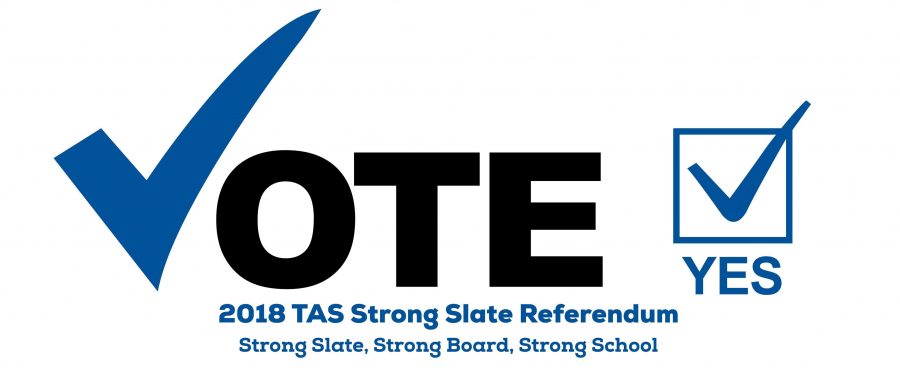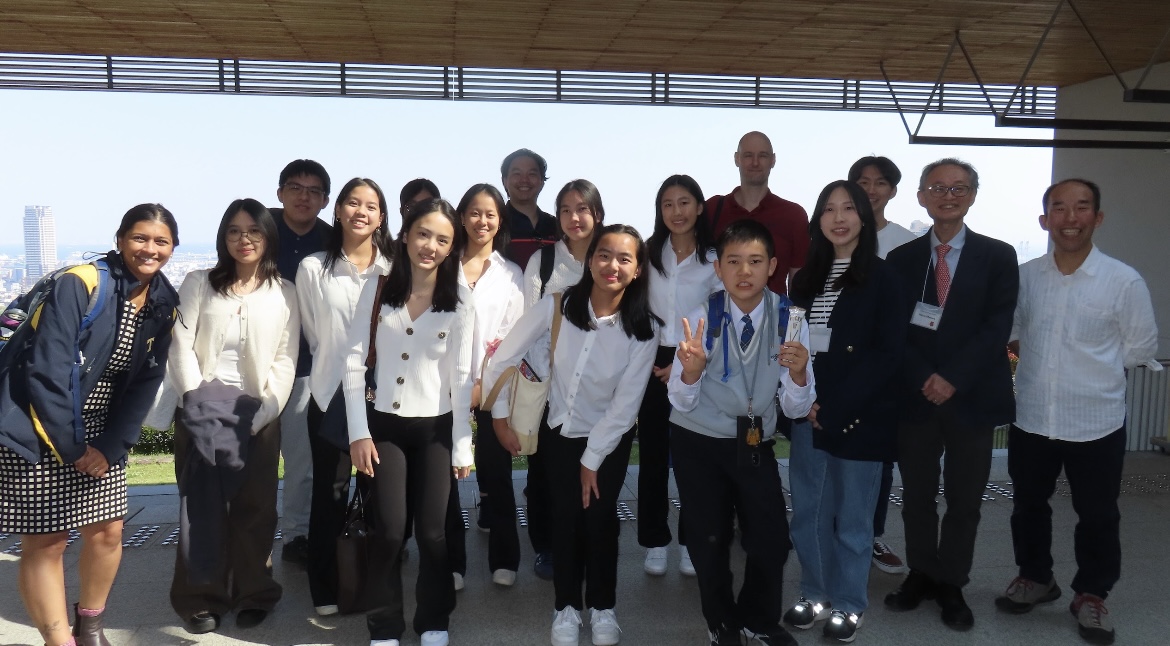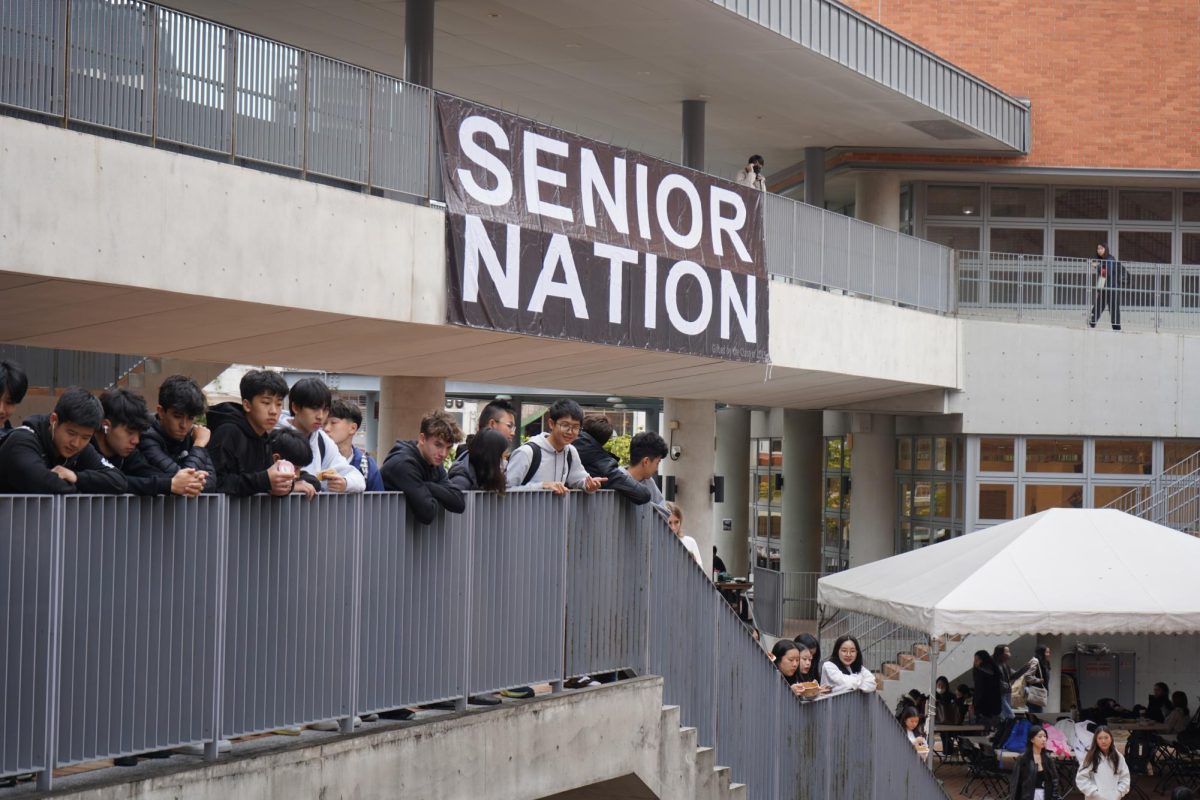Updated March 20, 3:15 p.m.
318 parents voted in the Strong Slate Referendum on March 19, a figure representing 10.2 percent of eligible voters. 187 members, or 58.8 percent of the electorate, voted in favor of the referendum, while the remainder voted against. Therefore, the referendum fell short of the required two-thirds majority and did not pass.
On March 19, Taipei American School parents will vote on the Strong Slate Referendum, which puts forth two major amendments to the structure and election of the school’s Board of Directors. The TAS Board consists of nine elected members, who must be parents of current students, and four appointed members, who are not current parents. The Board holds elections for up to three open elected member positions every spring. At present, the Board’s Nominating Committee is required to nominate at least two candidates for each open position, guaranteeing that an election will occur. Once elected to the Board, members can run for as many consecutive three-year terms as they wish, provided that they will still have a child at TAS by the end of their term.
However, the Strong Slate Referendum proposes substantial changes to these regulations, effective from the 2018-2019 school year onward. A two-thirds “Yes” vote with a minimum of 50 parents participating will be required to pass the referendum’s two amendments. The proposal moves firstly to allow the Nominating Committee to nominate only one candidate for each open position; and secondly, to impose limits on how many consecutive term Board members may serve.
According to Mr. Joseph Hwang, Chair of the Board Governance Committee, “The Strong Slate Referendum is one further step in the Board’s ongoing efforts in recent years to strengthen its governance structure to keep pace with the school’s continued growth as a leading school in Asia and the world.” He says that the purpose of having only one nominee for each position is to increase the pool of willing candidates, because currently, the competitive election process guaranteed by the two-nominee requirement discourages many candidates from running.
If passed, the first amendment will mean that on some occasions, vacant Board positions could be filled with no election. Nevertheless, Mr. Hwang says, “We want to emphasize something that will not change. And that is if you are a parent who is interested in running and were not nominated, you can write in [as a candidate]. All you need is 50 parent signatures to sign a petition to support you, and you are on the slate. In that case we would have a Board election as we have in the past.”
The second amendment, if passed, will limit elected Board members’ service to a maximum of three consecutive three-year terms, and appointed Board members’ service to a maximum of two consecutive four-year terms. After this maximum is reached, Board members will then have to take a hiatus of one year before being eligible to return. A statement on the official referendum website says, “The Board is looking to evolve in a smooth and orderly fashion…term limits [will] create a predictable and stable method of bringing on new Board members.”
The referendum as a whole, according to the Board’s FAQ, looks to improve the structure of the TAS Board in line with the governance models at the top independent schools in the United States. “The great independent schools that everybody knows about—like Exeter and Harker —are self-perpetuating,” says TAS Upper School Principal Dr. Richard Hartzell. “The board members themselves select new members…their goal is to preserve and improve their institution.”
The results of the Strong Slate Referendum will be announced on March 20 and will be available on the TAS website, tas.edu.tw.




![[PHOTO COURTESY OF PIXABAY]](https://blueandgoldonline.org/wp-content/uploads/2025/03/white-18227_1280-1200x803.jpg)

![[PHOTO COURTESY OF PIXABAY]](https://blueandgoldonline.org/wp-content/uploads/2025/03/fire-6706674_1280-1200x800.jpg)
